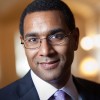New York Times columnist Charles Blow recently published an appreciation of the writings and speeches of late-era Martin Luther King, Jr. that inspired me to return to some of my favorite speeches. I, too, love Dr. King’s writings from the years 1967 and 1968. They still convey the determination of early King, and some lift and inspiration reminiscent of the “I Have A Dream” period, but the optimism has been weathered by over a dozen exhausting years of work in the movement. Undercurrents of anger and frustration shine through, and a sharpened analysis points to the inextricable links among economic inequality, the war in Vietnam and systemic racism.
Blow references Dr. King’s great speech at Stanford University, “The Other America”; the full video of the speech is available online, and on this MLK Day it is worth a watch. King delivered this speech just a few days after he made his public statement in opposition to the Vietnam War at Riverside Church in New York.
But I want to point you to another great speech, from the summer of 1967. Dr. King gave the closing address at the annual convention of the Southern Christian Leadership Conference (SCLC). While the themes are consistent with the Stanford and Riverside Church addresses (calls for attention to economic change and an end to the war), he strays from the prepared text, weaving sermons in and out of the narrative for this audience of clergy and activists. Asking the question “Where do we go from here?” Dr. King asserts that the “movement must address itself to the restructuring of the whole of American society,” that the “problem of racism, the problem of economic exploitation, and the problem of war are all tied together.”
His main exhortation for the SCLC that August afternoon — one that resonates with me today — is “let us go out with a divine dissatisfaction.” It is all too tempting to become complacent with the way things are, to accept partial justice as good enough, to feel that being dissatisfied is somehow equivalent to being ungrateful. Dr. King reminds us that dissatisfaction in the face of injustice is powerful: “Let us be dissatisfied until slums are cast into the junk heaps of history. … Let us be dissatisfied until integration is not seen as a problem but as an opportunity to participate in the beauty of diversity.”
When we assess the state of the world around us, we sometimes forget our history: the fact that things which may feel unique or unprecedented about our current times typically have antecedents and precedents. The chaos of today bears a remarkable similarity to the world that Dr. King was facing in the late 1960s: political and social polarization, communities ravaged by economic displacement and drug crises, a distant war that had raged for years without an end in sight. Indeed, 2020 may very well be the new 1970.
We can take a lesson from Dr. King as he stared at the abyss of chaos that seemed to be looming. He did not despair; he did not shrink away from the challenge. Despite over a dozen straight years of an exhaustive fight for justice, he responded with energy, with vigor, with urgency. He concludes his 1967 book “Where do we go from here? Chaos or community?”:
“We are now faced with the fact that tomorrow is today. We are confronted with the fierce urgency of now. In this unfolding conundrum of life and history there is such a thing as being too late. Procrastination is still the thief of time. Life often leaves us standing bare, naked and dejected with a lost opportunity. … This may well be mankind’s last chance to choose between chaos or community.”
We live at a time when the value of our individual identities is denied and the act of expressing how our differences have shaped our experiences is dismissed as “identity politics.” We live at a time when shared humanity is ignored, when refugees are compared to (and caged as) animals, when empathy and understanding are forgotten values. We live at a time when the right to belong is not equally earned, but determined by wealth; when we fear for our safety in the face of epidemic gun violence; when our climate has descended into a series of manmade natural disasters; when we have lost sight of our interdependence and reciprocal obligations to each other’s health and welfare; when sentiment and experience divides instead of unites.
And yet we do not have to look to history to identify moments when people have been moved by divine dissatisfaction to pursue community over chaos, at great personal risk. We at Kenyon need look no further than our own alumnus, Marco Saavedra ’11. For nearly a decade, Marco has taken a stand for a just and humane immigration system, risking his own deportation in order to call attention to the abuses and failures of the system, and serving as a role model for all of us. I am proud that so many faculty, students, alumni and members of the Kenyon community are supporting Marco; I join them in calling for approval for his asylum and for justice in our immigration system.
The best way we can honor Dr. King is to choose community over chaos — to find the courage and will to overcome procrastination and stand with those who are sacrificing for justice. Like Dr. King himself, we must face the world with divine dissatisfaction and move beyond procrastination to urgency.
